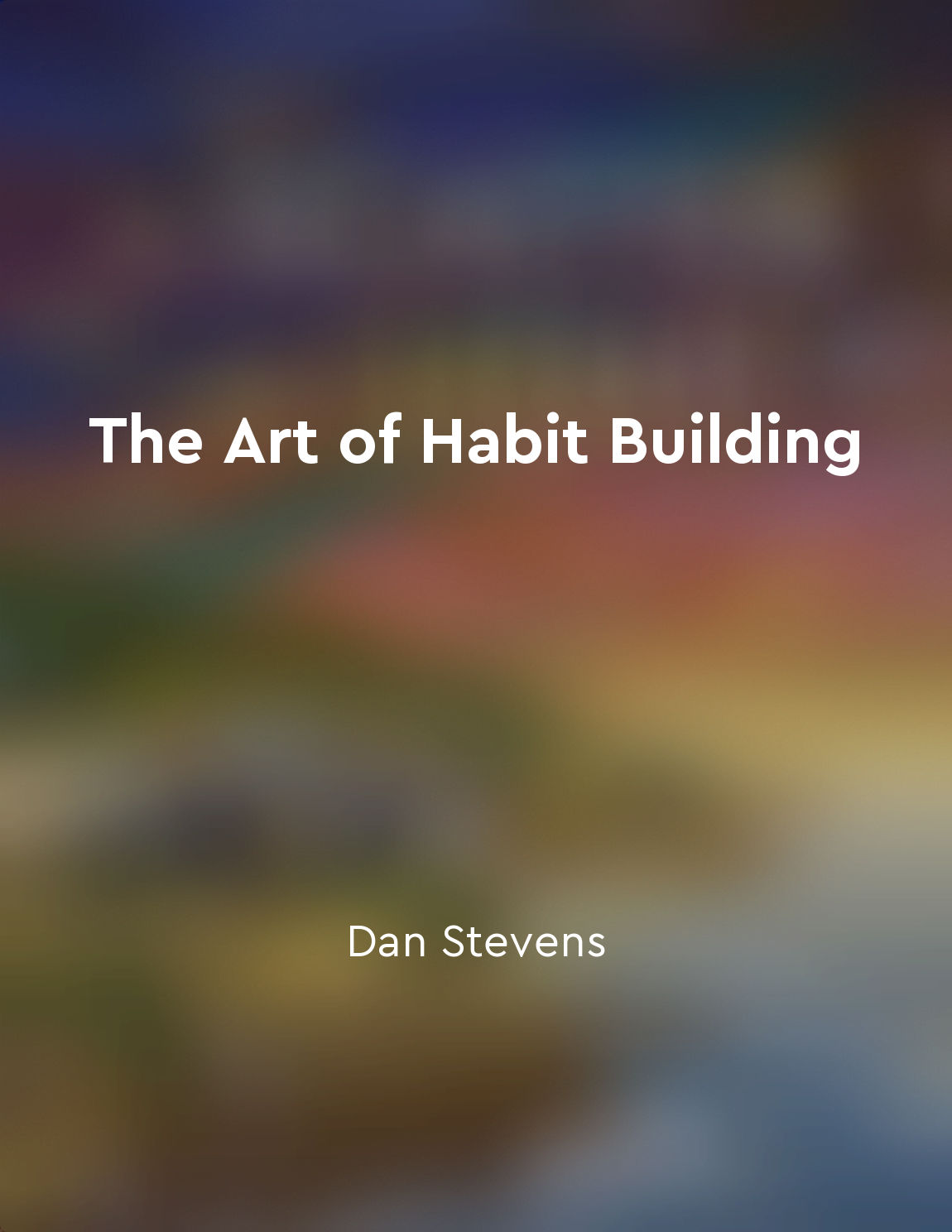Emotions create habits, not motivation from "summary" of Tiny Habits by BJ Fogg
When you think about habits, you might believe that motivation is the driving force behind them. You might assume that if you just had enough willpower and desire, you could stick to a habit consistently. However, according to the Tiny Habits method, this is not necessarily the case. In reality, it is our emotions, not our motivation, that play a central role in the formation of habits. Emotions are powerful triggers that can lead to the automatic creation of habits. When we experience a positive emotion after completing a behavior, we are more likely to repeat that behavior in the future. This is because our brain associates that behavior with the positive emotion we felt, reinforcing the connection and making it more likely for us to do it again. On the other hand, if we experience a negative emotion after performing a behavior, we are less likely to repeat that behavior in the future. This is because our brain associates the behavior with the negative emotion, discouraging us from doing it again. In this way, our emotions serve as feedback mechanisms that guide our habit formation. Motivation, on the other hand, is often fleeting and unreliable. It can be difficult to sustain over time, making it an unreliable source of energy for creating lasting habits. Emotions, on the other hand, are more consistent and powerful drivers of behavior. By harnessing the power of our emotions, we can create habits that are more likely to stick and become a natural part of our daily routine.- The key to creating lasting habits is not to rely solely on motivation but to understand and leverage the power of our emotions. By designing our habits to evoke positive emotions and removing barriers that lead to negative emotions, we can set ourselves up for success in building habits that will stand the test of time.
Similar Posts
Build a support system for accountability
To achieve your goals, it's essential to have a support system in place for holding yourself accountable. This support system c...
Small wins can lead to bigger successes
The idea that small wins can pave the way for larger victories is a central theme in the book "The Power of Habit: by Charles D...

The impact of social connections on happiness and wellbeing
Social connections play a vital role in our happiness and overall wellbeing. Humans are social creatures, and our relationships...
Create a habit recipe that works for you
To create a habit recipe that works for you, start by identifying a behavior you want to turn into a habit. Keep it simple - yo...
Focus on priorities
When it comes to achieving success in any area of your life, it is crucial to focus on priorities. This means identifying the m...

Use triggers to reinforce your habits
Triggers are powerful tools in habit building. They act as signals to your brain that it's time to engage in a particular behav...
Moral distinctions arise from feelings of pleasure and pain
When we examine the nature of moral distinctions, we find that they ultimately stem from our feelings of pleasure and pain. The...
Use implementation intentions to plan for obstacles
When it comes to creating new habits, it is essential to plan for obstacles that might come your way. One way to do this is by ...
Practice effective communication to build strong relationships
Effective communication is essential for establishing and maintaining strong relationships in both personal and professional se...
Belief in oneself
Belief in oneself is the cornerstone of success in any endeavor. It is the driving force that propels a person towards their go...

